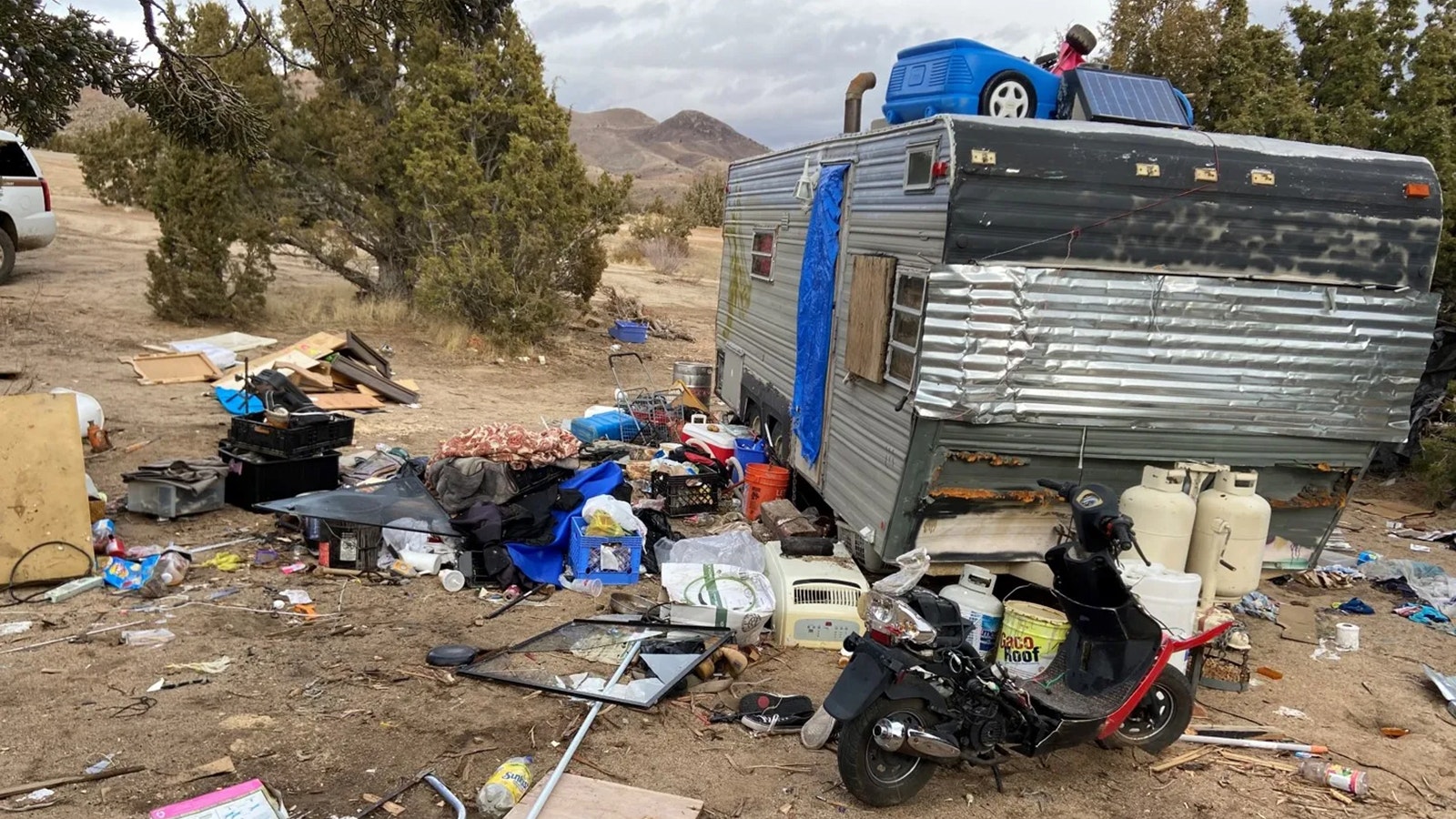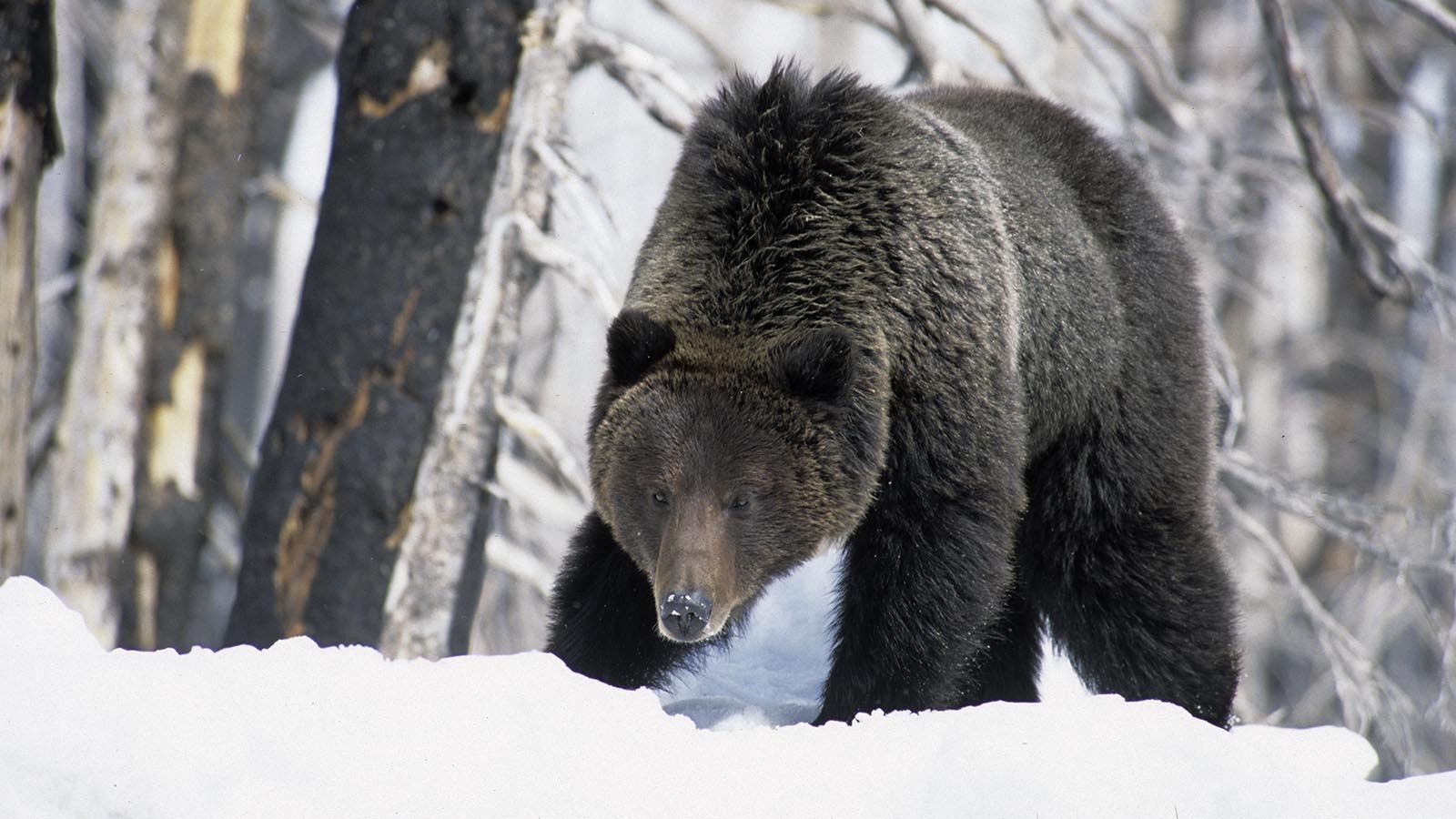An ongoing effort to clear abandoned camper trailers from U.S. Forest Service land near Greybull is barely scratching the surface of a problem that persists on National Forests across Wyoming and the West, avid campers have told Cowboy State Daily.
People also are apparently squatting in campgrounds well past the time limits imposed on most National Forests, said local outdoors enthusiast Kevin Fawcett of Sheridan. In most areas, campers can’t stay in the same campsite for more than 14 days during a 28-day period.
Some folks are staying put much in one particular site longer than that, and even bringing their own bathroom facilities, he said.
“We were out for three weeks in July, and it looked like some groups set up residency by having port-a-potties on location,” Fawcett said.
Widespread Problems
The problems go far beyond Wyoming, Texas resident Kathy Mosely said.
“It not just in Wyoming where it’s going on. It’s pretty much everywhere,” she told Cowboy State Daily during a phone call from a campsite at Navajo Lake State Park in New Mexico.
She and her husband have been traveling around the West with their Overland camper trailer and staying in Forest Service and state park campgrounds for about two years. They recently stayed at Flaming Gorge, where she said empty camper trailers were taking up some of the best camp sites at the water’s edge.
A Forest Service official also told Cowboy State Daily that the problem is ongoing across the West.
“Within the Rocky Mountain Region, which covers five states — Colorado, Kansas, Wyoming, Nebraska and South Dakota — abandoned campers and RVs and long-term recreational camping continue to be issues in national forests throughout the region. We tend to see higher rates during the summer and fall months and lower rates during the winter months,” said Nick Walters, the law enforcement patrol commander for the Forest Service’s regional headquarters in Lakewood, Colorado.
Is Private Management The Answer?
A long-term parking area was set up on the National Forest near Greybull in the 1980s, District Ranger Mark Foster recently told Cowboy State Daily. He oversees the Medicine Wheel Ranger District, which is based in Greybull and part of the Bighorn National Forest.
The system worked well at first, but then people started abusing it, leaving broken-down campers there for years — so long that animals started taking up residence inside some of them, he said.
Now, Foster wants the camper parking area cleared out.
Foster said he doesn’t want to permanently ban long-term camper parking. Instead, he hopes the Forest Service can convince a private concessionaire to take over the site.
They could charge a minimal storage fee and crack down on bad actors by seizing abandoned campers and immediately putting them up for auction, he said.
To sell or auction off abandoned campers, the Forest Service must go through a bureaucratic process that can take up the three months, he said.
Stinking Carcasses
Fawcett said that from what he’s seen in the Sheridan area, he’s convinced that people are flagrantly ignoring camp site time limits, and he doesn’t think the Forest Service is doing enough to crack down on it.
“It’s pretty obvious that the Forest Service and the users don’t pay attention to this,” he said.
Mosely said that as she and her husband have been making the rounds among campsites over the past couple of years, they have noticed some people who seem to have stayed in particular sites for months on end.
“We’ve seen people who stay in one spot for three or four weeks, or even months at a time,” she said.
And as hunting seasons open up across Wyoming and the rest of the region, a few hunters are campsite slobs, Mosely added.
“It’s not just the trailers, it’s the carcasses of animals that they won’t bury or properly dispose of,” she said. “When they’re done taking the meat from a big game animal, they leave the skin and the rest of the carcass just sitting out on the ground. The smell is nasty.”
Worse Near Big Cities
While Mosely said she saw people hogging good campsites at Flaming Gorge, Walters said Wyoming might be spared the worst of the abuses, which seem to take place near large metro areas.
“We see more recreational use on the National Forests that are close to highly populated cities or towns. With this use comes an increase in long-term camping, abandoned campers, vehicles, trash and waste. It's hard to say if any one place is worse than another. These activities impact each forest or ranger district where they occur,” he said.
“We tend to see more extended use near the Denver Metro area, but we have resources available to assist with removal. The more remote district offices do not tend to have resources immediately available, so several abandoned campers could significantly impact those areas,” Walters added. “I am not able to respond to the question of whether there has been an increase or decrease in this activity from previous years.”
Check Local Regulations
To avoid annoying other campers, or possibly getting on the wrong side of the law and having their RVs impounded, people should double-check camp site time limits in whatever area they’re headed to, he said.
“Since most forests have slightly different stay limits, I suggest that individuals reach out to the Ranger District office that oversees the area they plan to visit. The Ranger District will be able to provide the most up-to-date rules and regulations for that specific area,” Walters said.
Mark Heinz can be reached at mark@cowboystatedaily.com.





